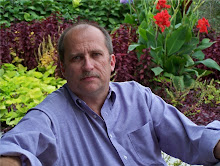OK, I’ve done it now. I’ve pissed off the Danes.
Before leaving home, I decided that I would not be one of THOSE Americans. You know the ones I’m talking about – the ones who assume everyone in every country should speak English, and we, being from the greatest superpower on earth, should not be required to learn their language.
So in late spring, I downloaded a free language software called BYKI, and started learning Danish. A week ago, looking into the so-called Copenhagen Card that allows tourists to travel on buses and the subway and visit museums free (after buying the card), I was very pleased with myself when I was able to read the Danish web site enough to understand the requirements. Then I went off happily to the airport and boarded a flight for Copenhagen. All was well with the world.
When I arrived, my first stop was the train ticket office.
“Hej. Jeg vil gerne til Vester Søgade,” I said.
The ticket agent, ever the polite Dane, answered with a smile and a ”Hej!” (hello), and said something back to me. What she said totally evaded me, so I fell back on a tried and true phrase.
“Jeg forstår ikke. Kan du engelsk?”
The clerk frowned at me. “Of course I speak English.”
I got my ticket, but she seemed rather annoyed.
Again at the information desk at Copenhagen Central Station, I asked, “Kan du engelsk?” Again the annoyed look, and the clerk promptly switched languages and gave me directions to my hotel.
I vowed not to ask the stupid question again, but I still wanted to be as polite as possible, so I approached the hotel desk with the appropriate phrase: “Jeg har lavet en reservation.”
The clerk nodded, asked my name and I replied in Danish. That’s as far as I got. She spoke the rapid-fire language and I must have looked befuddled, because she certainly looked concerned. I quickly employed my most useful phrase: “Jeg forstår ikke,” (I don't understand). This time, I decided it best not to ask if she could speak English, I just made it clear that I was ignorant of the language. “Jeg er amerikaner,” I explained.
Again, a quick switch to English, but this time with no annoyance. “Have you been to Denmark before?” I told her I had not, and got a surprised look back. “How did you learn to speak Danish???”
I vaguely answered, got my key and went to my room. I’ve got the hang of this, I thought. Off to get some dinner that night, I walked past the strip clubs on Gammel Kongevej to a 7-11. (Side note: there are approximately 7,711 of these within a 100-yard radius of my hotel.)
The Indian clerk had locked the door to go the restroom, but he gestured for me to wait and came back to let me in momentarily, greeting me in Danish. I didn’t attempt an answer, simply nodding and saying, “Tak,” (thanks) as he opened the door for me. I was perusing the glass case of sausages when he finally asked a question in Danish that required an answer. So I again employed my favorite Danish phrase.
“Jeg forstår ikke. Kan du engelsk?”
Again the annoyed look. “Of course,” he said with a flawless British accent and pointed again at the sausages. “Would you like a hotdog?”
After two days here, I now know that Danes not only speak English, they speak it better than I do. Apparently, so do Indians who live in Denmark. Even the waitress and the manager at the Thai restaurant where I had dinner last night speak English better than any Asian I’ve ever seen in America.
Camilla Steffensen, a spokeswoman for Dansk Energi, explained it to me in her near perfect American accent. Danes begin learning English in school in third grade. They already hear it from their parents and in businesses all around them. Also, there are only 5 million Danes and the language is difficult anyway. They have to know other languages to communicate with the rest of the world.
And finally, the most important reason: “We watch a lot of American television.”
I’ve also learned that the advice a well-traveled friend gave may be more appropriate than I thought. The friend, a former U.S. vice consul to India, said there is one phrase Americans should learn in the language of every country they plan to visit.
“Don’t shoot – I’m a Canadian.”





